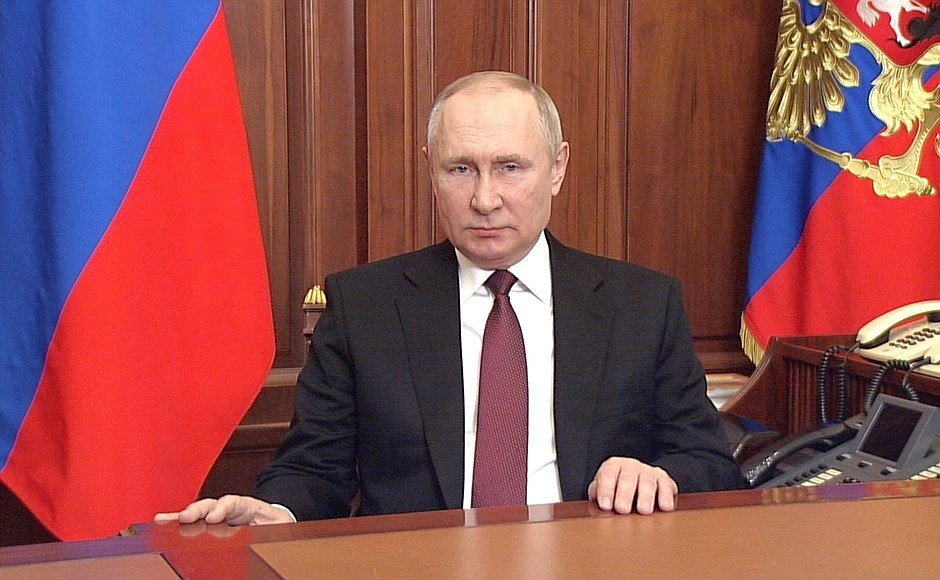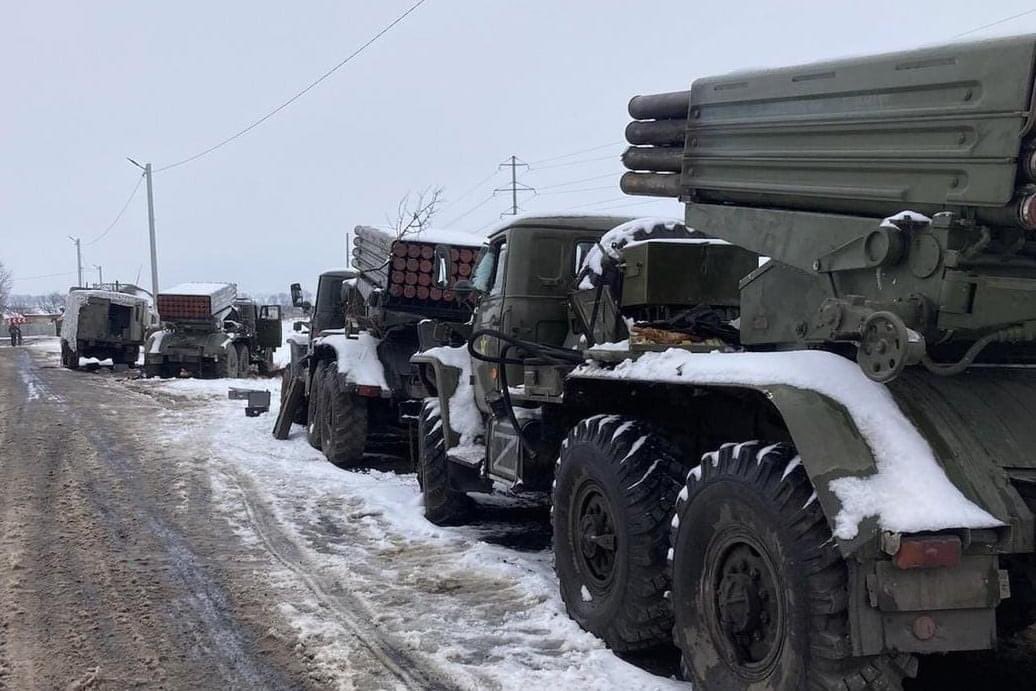The Kremlin has hit back after a top Ukrainian intelligence official said President Vladimir Putin was number one on Kyiv's kill list.
Russia also moved ahead with a plan to deploy tactical nuclear weapons in Belarus, whose leader said the warheads were already on the move, in the Kremlin's first deployment of such bombs outside Russia since the 1991 fall of the Soviet Union.
Vadym Skibitsky, deputy head of Ukraine's military intelligence service, told Germany's Die Welt newspaper in an interview that Kyiv wanted to assassinate Putin "because he coordinates and decides what happens" in the war and that the Russian leader was aware he topped Ukraine's kill list.
"But in the end, everyone will have to answer for their actions," Skibitsky was quoted as saying.
"Putin is noticing that we are getting closer and closer to him, but he is also afraid of being killed by his own people," Skibitsky told Die Welt.
Skibitsky went on to name other Russians, including mercenary boss Yevgeny Prigozhin, Russian Defence Minister Sergei Shoigu, Chief of the General Staff Valery Gerasimov, and military commander Sergei Surovikin – nicknamed "General Armageddon" by the Russian media, as targets.
He was cited as saying that Putin was a difficult target because he was "holed up" a lot of the time but was now starting to appear in public more often.
When asked if measures to protect Putin were being stepped up after Skibitsky's interview, Kremlin spokesman Dmitry Peskov told state TV, "Believe me, our security services know their job and know what they are doing."
Peskov said Skibitsky's interview was confirmation that Russia had been right to launch what it calls its "special military operation" in Ukraine 15 months ago, a conflict which Ukraine and the West say is an unprovoked war of conquest.
The Kremlin described a drone attack on the Kremlin earlier this month as a Ukrainian attempt to kill Putin, something Kyiv denied at the time.
The New York Times had reported that US intelligence agencies believed the drone attack was likely orchestrated by Ukrainian spies or military intelligence, however.
Russia deploying nuclear arsenal in Belarus, says Lukashenko
Belarus President Alexander Lukashenko said that tactical nuclear weapons were already on the move after he said Vladimir Putin had signed an order, though there was no confirmation of that from the Kremlin itself.
The plan for the nuclear deployment was announced by Vladimir Putin in an interview with state television on March 25.
President Putin has repeatedly warned that Russia, which has more nuclear weapons than any other country, will use all means to defend itself, and he has cast the Ukraine war as a battle for the survival of Russia against an aggressive West.
The United States and its allies say they want Ukraine to defeat Russian forces on the battlefield but deny that they want to destroy Russia – and deny that the Ukraine war is in any way linked to post-Soviet enlargement of NATO.
It is still unclear exactly when the Russian tactical nuclear weapons will be deployed in Belarus, which has borders with three NATO members – Poland, Lithuania and Latvia. Russia will remain in control of the weapons.
Russia has a huge numerical superiority over the United States and the NATO military alliance when it comes to tactical nuclear weapons: the United States believes Russia has around 2,000 such working tactical warheads.
The United States has said the world faces the gravest nuclear danger since the 1962 Cuban Missile Crisis because of remarks by Vladimir Putin during the Ukraine conflict, but Moscow says its position has been misinterpreted.
The Treaty on the Non-Proliferation of Nuclear Weapons, signed by the Soviet Union, says that no nuclear power can transfer nuclear weapons or technology to a non-nuclear power, but it does allow for the weapons to be deployed outside its borders but under its control.




